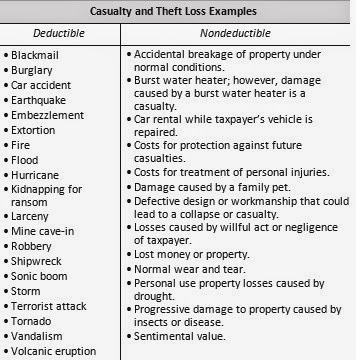Getting a refund come tax time is always a good feeling.
What’s NOT a good feeling, however, is finding out that your refund has been
snatched up by a greedy thief. Sadly,
this happens to many people each year. These people are the victims of a
type of identity theft in which fraudsters use their information to pocket
their tax returns. Though you might think this could never happen to you, it
most certainly could if you’re not careful! Fortunately, though, there are a
great many things you can do to protect your tax return from being taken by
these criminals.
Protection Tip #1:
File Your Return ASAP
As mentioned, the most common form of tax identity theft
occurs when criminals use your social security number and other identifying
information to file a return in your name. If someone is going to target you
for one of these scams, you can rest assured that the scammer will act early.
After all, he wants to get to your tax return before you do!
Thus, the longer you put off filing your return, the greater
your risk of having a fraudster do it for you! To keep yourself safe and to
reap the benefits of your tax returns sooner, just go ahead and file at the
earliest possible date.
Protection Tip #2:
Don’t Respond to Suspicious Emails
The internet has made our lives easier in so many ways. In
fact, these days, you can file your tax return online in a matter of minutes.
Unfortunately, though, the internet has also brought some not-so-great things
into our lives too, including “phishing scams.”
These scams occur when scammers send you trick emails,
asking you to input personal information. Often times, they will pose as your
bank, the IRS, or someone else with authority. More often than not, they will
even go so far as to have very “official” sounding email addresses. Typically,
these emails will ask you to click on a link and/or provide personal and
should-be-secure information or face consequences.
Instead, the fraudsters use your personal information to
scam you, or, even worse, to install dangerous malware on your computer that
will allow them to access your credit card number and other sensitive
information.
If you get a suspicious email or really ANY email that asks
for personal information, send it to spam right away! If you are concerned it
could actually be from your bank or the IRS- though that’s highly unlikely-
contact the real source to be sure. Typically, though, most serious
organizations know better than to ask you for personal information through email!
Protection Tip #3:
Use Caution When Filing Online
Finally, as mentioned, the internet provides a multitude of
ways for you to file your taxes online. Unfortunately, though, not every filing
website can be trusted. Before you start putting personal information into an
online tax form, make sure it’s legitimate! Read up on the website you are
using, check the site’s security certification, and always take a look at your
address bar to ensure you’ve typed in the site’ s name correctly. Some
fraudsters buy domain names that are close to the domain names of legitimate
tax filing sites and use them to try and steal your information.
It’s a scary world out there, but you don’t have to let it
get to you! By following these tips and being smart with your private information,
you can avoid tax fraud and other forms of identity theft.












